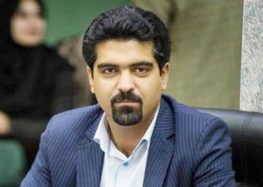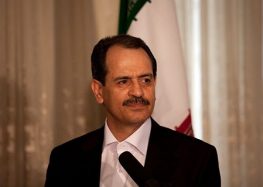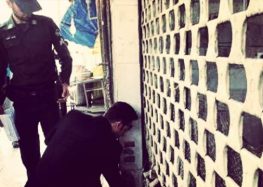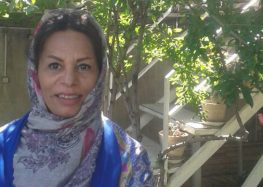Religious Minority in Iran Asks Khamenei for Constitutional Protection
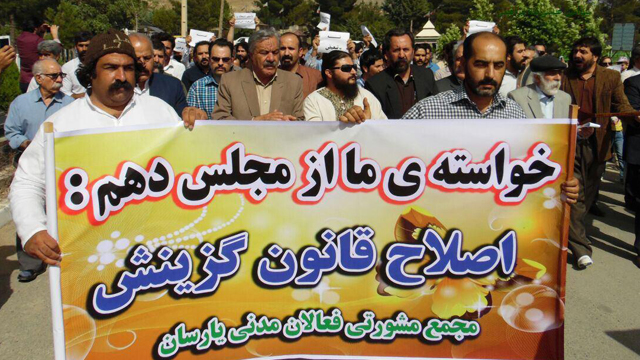
The leadership of the Yarsan faith in northwestern Iran has written to Iran’s supreme leader, Ali Khamenei, seeking his blessing for a constitutional amendment that would end discrimination against the faith’s followers and recognize their religious beliefs.
“As members of a civic organization we wrote a letter to the supreme leader in March 2015 because we believe that the discrimination against our community is rooted in the Constitution and the only person with the power to change it is the supreme leader,” Siavash Hayati, a spokesman for the faith, said in an interview with the International Campaign for Human Rights in Iran. “It has been more than 14 months and we still have not received a reply, so we sent him the same letter again.”
The mission of the Yarsan Community Civil Activists Society, which represents an estimated 2 million followers in Iran according to the group, is geared towards “preservation of religious identity,” “achieving national reconciliation,” “seeking freedom,” “achieving equality among all citizens” and “ending all forms of discrimination.” To achieve its goals, the group has vowed to work peacefully within the framework of Iran’s Constitution as well as the Universal Declaration for Human Rights.
Known by various names including A’een Yari, Kish Haghighat, Tayefeh San, Ali-Allahi and Kakaee, Yarsan followers live mostly in the Kurdish regions of Iran and Iraq. Some members of the faith believe it is a branch of Shia Islam, but the group insists on its independent religious identity.
“In our letter we mentioned 10 of the most important violations of the rights of Yarsan followers, especially the lack of legal recognition [of our faith] in the Constitution as a religious minority. That’s why our rights are being denied,” Hayati told the Campaign. “On the one hand, officials consider our faith a branch of Islam and Shi’ism and yet we don’t have the same rights as Muslims and Shias. We cannot get a job unless we deny our identity. We have no representatives in Parliament nor do we have any Yarsan followers in senior [government] positions. We can’t even be a school headmaster without denying who we are.”
Based on Article 2 of Iran’s Selection Law, only Muslims and religious minorities recognized by the Constitution can be employed by governmental organizations.
“The Constitution is the main obstacle to the Yarsan having equal rights along with other Iranians,” said the faith’s leadership in their letter to Khamenei. “Article 13 in particular does not mention the Yarsan and only recognizes Zoroastrians, Christians and Jews as religious minorities.”
“Our followers are required to reject their faith, culture and identity in order to get a job. If someone is discovered as a Yarsan follower, he or she is immediately fired,” continued the letter. “From the time of their birth, Yarsan children are automatically deprived from ever obtaining positions within governmental offices and organizations despite not having committed any crime.”
The letter argues that even though the Yarsan are a large religious minority, their houses of worship have been in some cases taken from them with no permits being issued for establishing new ones. It also notes that members of the faith serving compulsory military service have been forced to shave or trim their moustaches against their religious beliefs.
In July 2015 Saeed Heydari Teyeb, then a MP from Kermanshah, noted in a parliamentary speech that the Yarsan make up a significant portion of the population in his province, but admitted that they are being denied some rights as citizens, including employment in state bodies or serving as witnesses in court cases.
The Yarsan spokesman pointed out that some Shia theologians and grand ayatollahs had issued fatwas (religious decrees) that described followers of the Yarsan faith as “infidels” and “apostates.” These inflammatory terms “can have religious and social consequences that could lead to physical violence,” Hayati told the Campaign.
To protest the discrimination and humiliating treatment of the Yarsan, three members of the faith, Hassan Razavi, Nikmard Taheri and Mohammad Ghanbari, carried out self-emulations in public and died between June and August 2013. But the spokesman for the faith said the group’s objectives were not political.
“What we all have in common is our humanity and the Universal Declaration of Human Rights should apply to all of us,” said Hayati. “Our issues are not political. We believe in the separation of religion and politics and do not see ourselves as an alternative [political force.] We expect the officials of the Islamic Republic to respect our rights and we hope the public will help us.”

